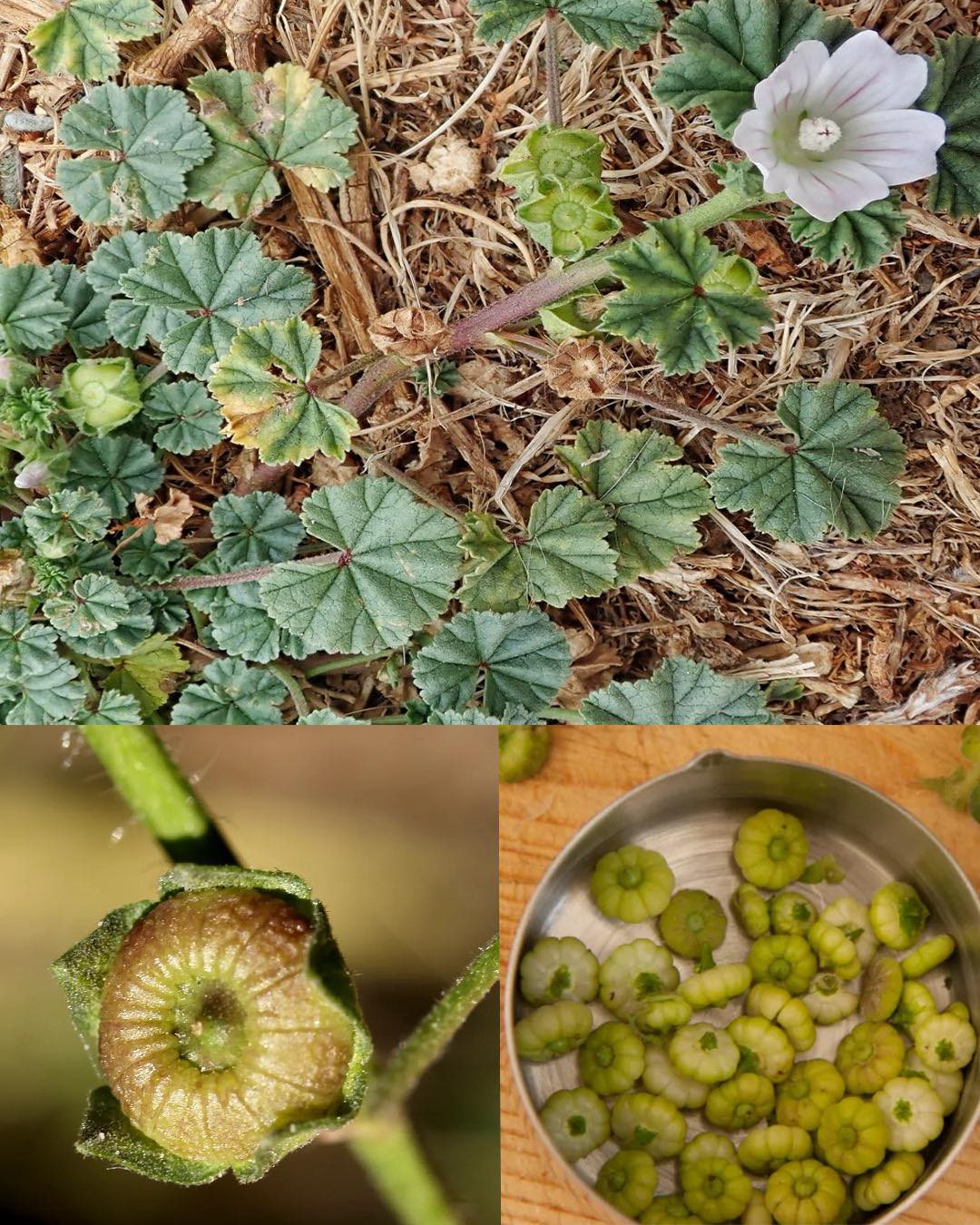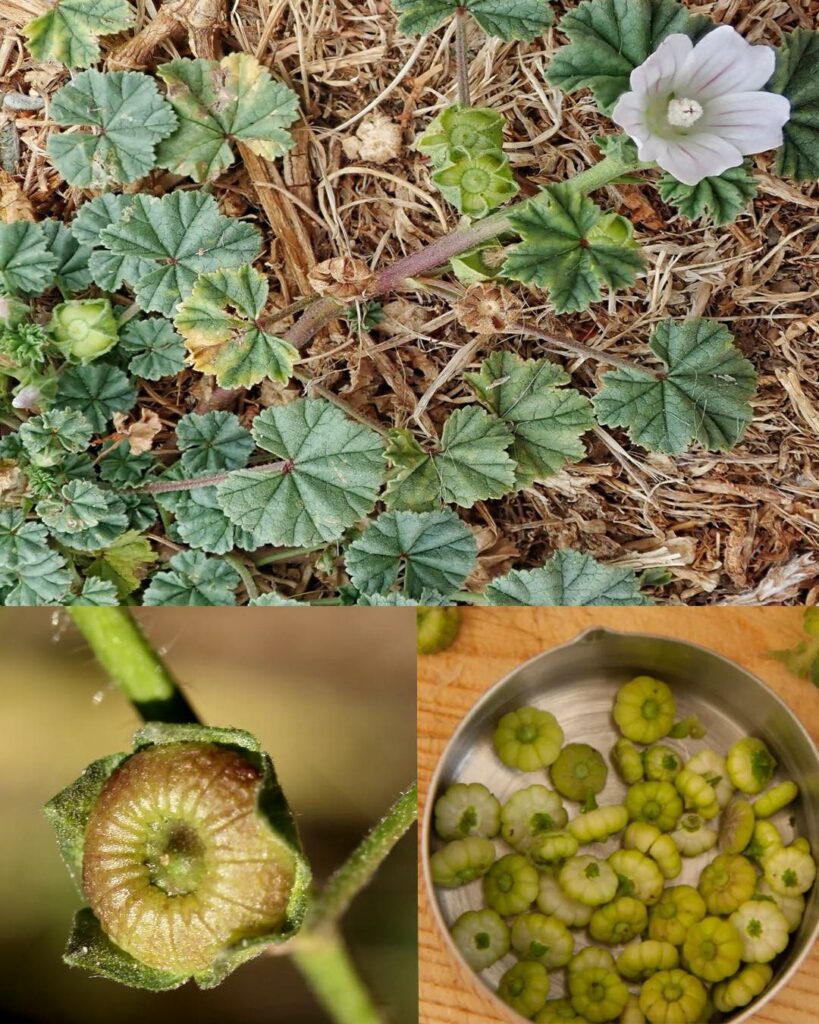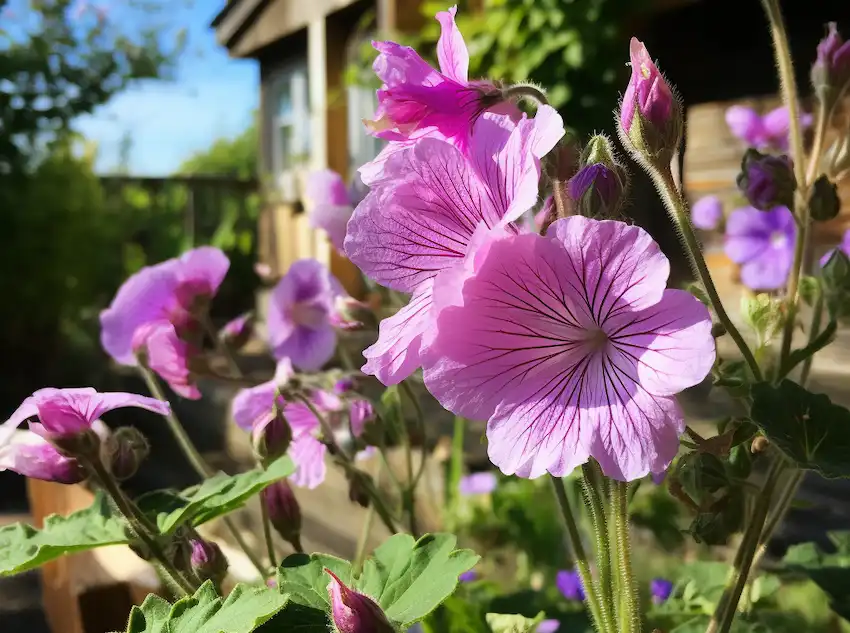

Las plantas de malva comunes, específicamente Malva neglecta y Malva sylvestris, se han utilizado en la medicina tradicional durante siglos. A pesar de ser especies diferentes, ambas comparten propiedades y usos medicinales notables. Este artículo profundiza en los beneficios y usos para la salud de estas plantas, ofreciendo información sobre su aplicación en las prácticas contemporáneas de salud natural.
Malva Neglecta: El Sanador Subestimado

Malva neglecta, comúnmente conocida como queserweed, prospera en una variedad de entornos. Esta planta se distingue por su hábito de bajo crecimiento, raíz principal profunda y hojas circulares en forma de riñón. Cada parte de Malva neglecta es comestible, lo que contribuye a su versatilidad en usos medicinales y culinarios.
- Digestive Aid: The plant acts as a gentle laxative, soothing the digestive tract and aiding in the management of constipation.
- Anti-inflammatory: Malva neglecta is known for its anti-inflammatory properties, making it beneficial in treating urinary tract infections and kidney issues.
- Respiratory Relief: As an expectorant, it assists in alleviating coughs and other respiratory ailments.
Malva Sylvestris: The Versatile Herb
Malva sylvestris, or common mallow, is recognized for its attractive flowers and has a broader range of applications. This plant is a self-fertile hermaphrodite, capable of thriving in harsh conditions.
- Respiratory Health: Effective in treating respiratory illnesses, Malva sylvestris eases chest congestion and soothes the throat.
- Digestive Benefits: Acting as a mild laxative, it helps in regulating the digestive system.
- Skin Care and Anti-Aging: Topically applied, it possesses potential anti-aging effects, keeping the skin youthful.
- Sleep Aid: Its essential oil or tea is used for inducing relaxation and improving sleep quality.
- Cancer Prevention: Contains beta-sitosterol, which is linked to prostate cancer prevention.
Culinary Uses
Apart from their medicinal benefits, both Malva neglecta and Malva sylvestris have culinary uses. The leaves and flowers can be incorporated into salads, soups, and other dishes, offering a nutritious boost.
Safety and Precautions
Si bien ambas plantas son generalmente seguras, es crucial consultar con un proveedor de atención médica antes de usarlas, especialmente si está tomando otros medicamentos o tiene condiciones de salud existentes. Las mujeres embarazadas o lactantes deben tener precaución.

Malva neglecta y Malva sylvestris no son solo plantas hermosas; son reservorios de beneficios para la salud. Desde ayudar a la digestión hasta la salud respiratoria e incluso la posible prevención del cáncer, estas plantas son un testimonio del poder de los remedios naturales. Su fácil cultivo y diversos usos los convierten en valiosas adiciones a cualquier gabinete de medicina herbal.
